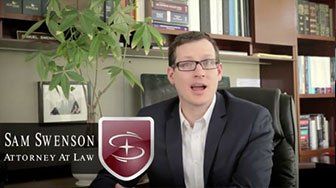PRACTICE AREAS
RATINGS
CONNECT WITH US
VIDEOS
Is “Happy Birthday” Copyrighted?
 One of the most well-known songs in the English language is “Happy Birthday.” In a recent ruling by the federal court, it was determined that the Happy Birthday lyrics are not protected by a valid copyright.
One of the most well-known songs in the English language is “Happy Birthday.” In a recent ruling by the federal court, it was determined that the Happy Birthday lyrics are not protected by a valid copyright.
The lawsuit was filed by filmmakers objecting to the hold on the song by Warner/Chappell Music. U.S. District Judge George H. King reasoned that “[b]ecause Summy Co. never acquired the rights to the Happy Birthday lyrics, Defendants, as Summy Co.’s purported successors-in-interest, do not own a valid copyright in the Happy Birthday lyrics.”
As a result of this ruling, Warner/Chappell will not recover the $2 million that is reported yearly in revenue from use of the song in movies and television shows. At least this will be the case unless something occurs at the appellate level or until another party comes forward with valid proof of ownership of the song.
According to sources , the lyrics to Happy Birthday date back to a 19 th century schoolteacher named Patty Smith Hill and her sister Mildred Hill. The sisters assigned their rights to the publishing company owned by Clayton Summy. The copyright registrations for “Happy Birthday” were later made by Summy’s company. It has been argued by Warner/Chappell that the registration in 1935 covered the piano arrangement and the lyrics to the song. Both parties agree that the melody is so well-known that it is now public domain.
The court’s recent opinion not only rejects the argument by Warner that the copyright entitles them to a “presumption of validity,” but specifically reasons that it is not clear whether the registration included the lyrics or only covered the piano arrangement. The opinion further establishes that the rights to the Happy Birthday song were never properly transferred.
“Defendants ask us to find that the Hill sisters eventually gave Summy Co. the rights in the lyrics to exploit and protect, but this assertion has no support in the record. The Hill sisters gave Summy Co. the rights to the melody, and the rights to piano arrangements based on the melody, but never any rights to the lyrics.”
Further, the court noted that the song appeared in 20 th century schoolbooks and the Hill sisters did not object to such publications until 1934 (four decades after they wrote the song). And, in their objection, the Hill sisters merely asserted their rights on the melody, not the lyrics.
The next phase of this litigation will likely be whether Warner will be ordered to return millions of dollars in licensing fees. We will continue to monitor this litigation, so be sure to check back for updates.
When it comes to copyrights, obtaining the right advice from the start can significantly increase the likelihood of your success. Contact The Swenson Law Firm for help.












